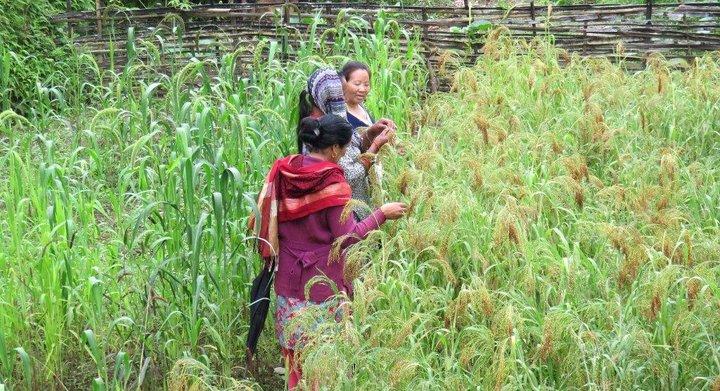Newly launched CGIAR Research Portfolio tackles growing complexity of agricultural development challenges

CGIAR has launched its new research portfolio, comprised of 11 Research Programs and 3 Platforms, that represents the second generation of CGIAR’s multidimensional work streams.
CGIAR has launched its new research portfolio, comprised of 11 Research Programs and 3 Platforms, that represents the second generation of CGIAR’s multidimensional work streams.
MONTPELLIER, FRANCE (15 May 2017) – CGIAR has launched a new portfolio of research programs designed to reduce by 150 million the number of people suffering from hunger in developing nations. By transforming agricultural and food systems, the CGIAR Portfolio 2017-2022 is the second generation of CGIAR’s Research Programs and Platforms aimed at reducing rural poverty, improving food and nutrition security and improving natural resources and ecosystem services.
“No dialogue can be more important than how to feed our world in the face of climate change. There is no doubt that investment in agricultural research has one of the highest returns. I call for greater support to CGIAR,” says Akinwumi Adesina, President of the African Development Bank.
Underlying these challenges is a need to increase the productivity and resilience of agricultural systems: food availability alone – both increasing production and reducing losses – needs to expand to feed the predicted global population of nine billion people by 2050. In Africa alone, food production needs to increase by 60% within the next 15 years to keep pace with the continent’s growing population, even as climate change, water scarcity and soil infertility threaten to limit yields.
Focused on selected development challenges, the ambitious portfolio places renewed emphasis on the global issues of nutrition and health, climate change, soils and degraded land, food systems waste, food safety and the global stewardship of genetic resources. It is designed to contribute significantly to the achievement of the UN’s Sustainable Development Goals (SDGs) and of CGIAR’s overall goals, of 150 million fewer hungry people, 100 million fewer poor people – at least 50% of whom are women – and 190 million hectares less degraded land by 2030.
“With more than two billion people suffering from micronutrient deficiency, 795 million of whom are undernourished, the challenge to sustainably, nutritiously and securely feed the growing population is clear,” says Elwyn Grainger-Jones, Executive Director of the CGIAR System Organization. “As the world’s largest agricultural research for development partnership, CGIAR is uniquely positioned to deliver multidisciplinary impacts at scale to improve the livelihoods of the most vulnerable, while also strengthening the planet’s fragile ecosystem.”
Extract above taken from the full text of the media release published on CGIAR 16 May 2017.
Read the full media release on the CGIAR website
Bioversity International is a CGIAR Research Centre. CGIAR is a global research partnership for a food-secure future. Find out more about Bioversity International and CGIAR.
Photo: Farmers participating in millet trials. Nepal. Credit: Bioversity International/B. Sthapit
